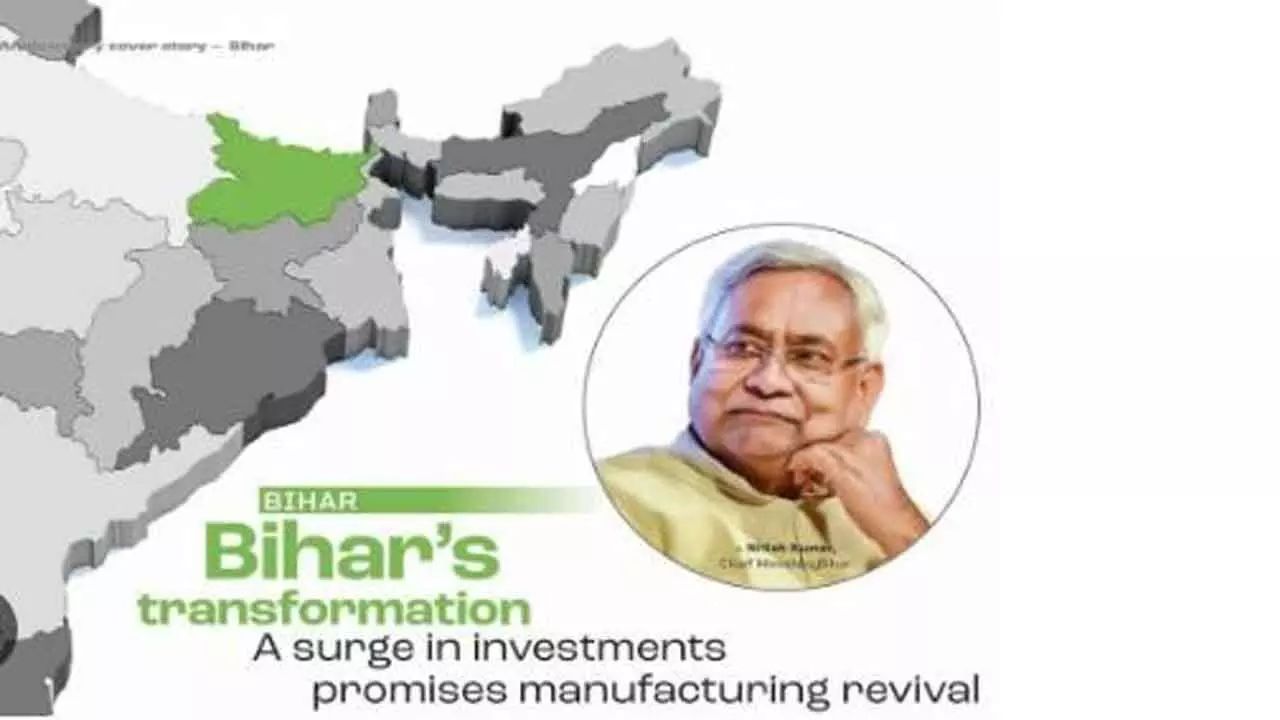Bihar Doubles Investments As Industrial Growth Surges
With his CEO-style approach to governance, Minister is pivoting Bihar into a gateway for investors to eastern India
Bihar Doubles Investments As Industrial Growth Surges

Patna: Bihar, once seen as less industry-friendly, has seen a surge in big ticket investments from the likes of Adani Group to Coca-Cola as it packages its vast resources with progressive policy to lure investors.
Its industries and tourism minister Nitish Mishra, with his CEO-style approach to governance, is pivoting Bihar into a state that could be a gateway for investors to eastern India. Mishra says the perception bias regarding Bihar’s industrial capabilities is slowly being overcome.
In recent months, Adani Group has announced investment of Rs8,700 crore in the state, Ambuja Cements is setting up a Rs1,200-crore unit, and Coca-Cola is expanding its bottling capacity. Bi-har Business Connect-2023 -- the state’s investor meet -- last year saw memoranda of understand-ing (MoUs) worth over Rs50,000 crore being signed with 300 companies.
And the second edition this week is expected to rake in more. Bihar’s industrial potential is limit-less, he says. “Bihar has been a victim of perception.
But that is changing now.” The state offers investors fiscal incentives ranging from interest sub-vention to reimbursement of state GST, stamp duty waiver, export subsidy and concessions for transportation, power, and land fee. Plus, it offers a single window clearance not just at the time of approval but also in disbursal of incentives.
Combine that with its resource endowment, inexpensive labour and vast market, Bihar has a po-tent mixture for industrial supernova. Mishra says the Freight Equalisation Policy of 1948, which mandates uniform pricing for finished products like steel across India, discouraged industrialisa-tion in mineral-rich Bihar.
Bihar is making up for the lost opportunity. With the new policies and massive spending on infra-structure -- be it roads and highways or power plants -- and “the abundance of human resource, I think now this is the time for us to move on,” he says. Bihar, he says, enjoys a strategic locational advantage because of its proximity to the vast markets of eastern and northern India and Nepal as well as accessibility to Bangladesh and Bhutan.
A fundamentally agrarian economy, the state has a large agricultural and animal production base offering abundant supply of raw material for a range of industries -- from agro-based (food pro-cessing, silk and tea) to leather and non-metallic minerals. Plus, there is no water problem and there is abundant inexpensive labour.
The state has also built warehouses and mega food parks, leather processing hubs, integrated manufacturing clusters and multi-modal logistics parks. It is now building two special economic zones (SEZs). “Our policy is good and fortunately our leadership here in Bihar has been so good that in these 19 years we have built a very good infrastructure,” he says.

